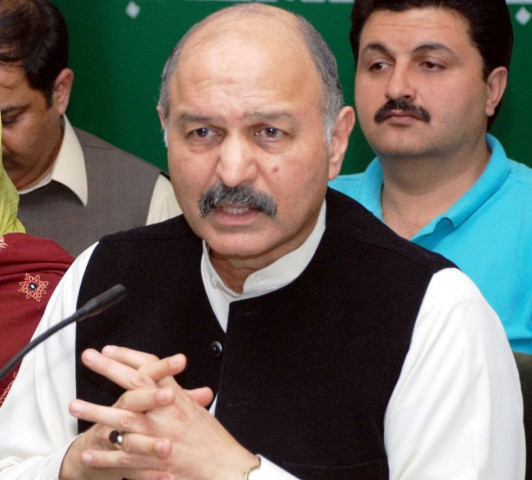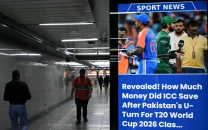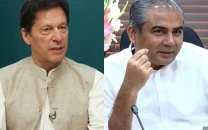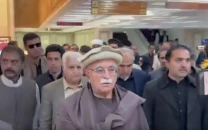‘Balanced approach needed in civil-military relationship’
Senator Mushahid Hussain Sayed said dialogue is step to begin talks on relations between the two institutions

Speaking at the ‘Civil-Military Relations’ dialogue at the Pakistan Institute for Parliamentarians Service on Wednesday, Chairman Senate Standing Committee on Defence and Defence Production Senator Mushahid Hussain Sayed said the Committee will work as a bridge between parliamentarians and the military and between Khaki [military] and Mufti [religious leaders] to find a unanimous solution to the problems being faced by the country.
“There is a need to have a balanced approach in the civil-military relationship and it should be discussed openly with an open mind,” Senator Hussain added.
He said the ‘Civil-Military Relations’ dialogue was a step to begin talks on relations between the civil and military institutions with a view to have consultations between stakeholders on the important national and security issues.
The people of Pakistan, parliament and the civil society, Senator Hussain said, always extended full help, cooperation and support to military in all its actions. He added the parliament fully extended its support to the Pakistan Army in the Swat operation.
Addressing the dialogue, Dr Hassan Askari Rizvi said, “[The] military needs civilian ownership to fight terrorism and only three parties, including the PPP, ANP and MQM have [an] open stance, whereas other political parties have a vague position.”
Later on, during the question answer session, the speakers were mum when a reference was given to the Supreme Court’s observation that these parties allegedly had militant wings in Karachi.
Dr Rizvi said that Islamic and right wing political parties were supporters of the military. But the problem for the military was that its traditional allies did not support its anti-terrorism campaign, he added.
Meanwhile, experts at a roundtable on the ‘Civil-Military Imbalance and its Policy Implications’ discussed the need to strike a balance between the two apparatuses by conducting free and fair elections, having a parliamentary democracy and observing the Constitution as a better solution to the problems between the two and maintained that the civil-military divide had done immense harm to Pakistan.
Addressing the roundtable discussion organised by the Sustainable Development Policy Institute (SDPI), Dr Ilhan Niaz of the Quaid-e-Azam University highlighted a dearth of academic research which explained the clout of suspicion between the civil and military institutions.
“Professionalism on the civil side had collapsed and the ability of Pakistan’s civil sector to formulate any policy is declining due to inept governance, corruption and weak strategies. [As a] result, the military is perceived to be Pakistan’s most reliable institution,” Dr Niaz stated.


















COMMENTS
Comments are moderated and generally will be posted if they are on-topic and not abusive.
For more information, please see our Comments FAQ